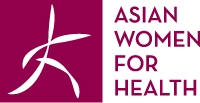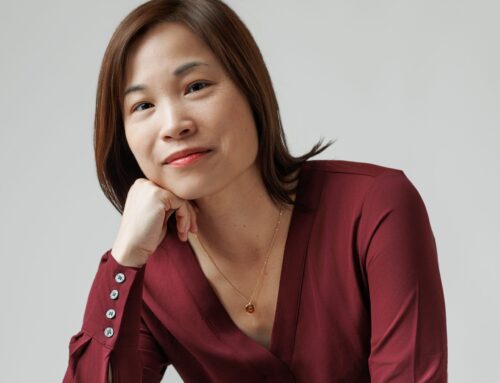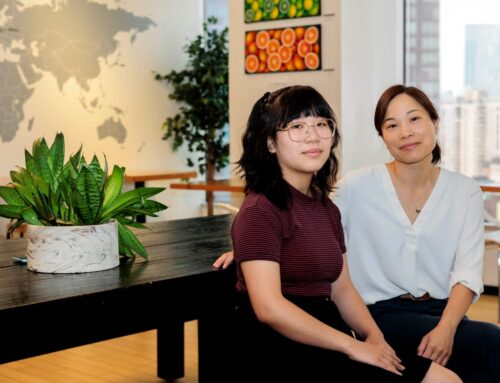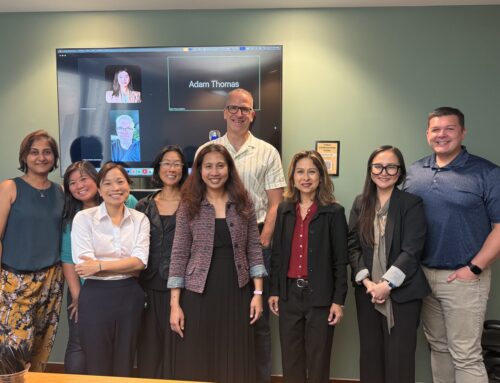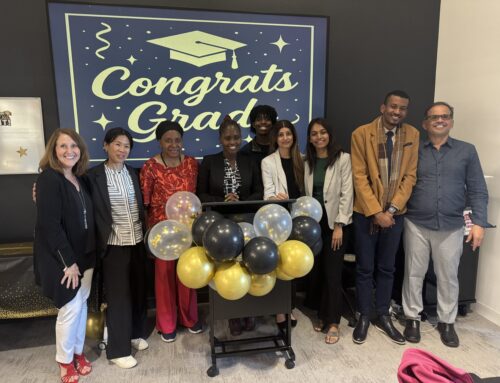On August 2, 2025, the community room at DotHouse Health was alive with emotion – laughter, pride, and perhaps even a few tears. Black and gold balloons framed the stage, families crowded together with phones raised high, and a sense of history hung in the air. For the ten women standing tall, this was more than a graduation. It was the culmination of months of hard work, personal growth, and the beginning of something that had never been done before.
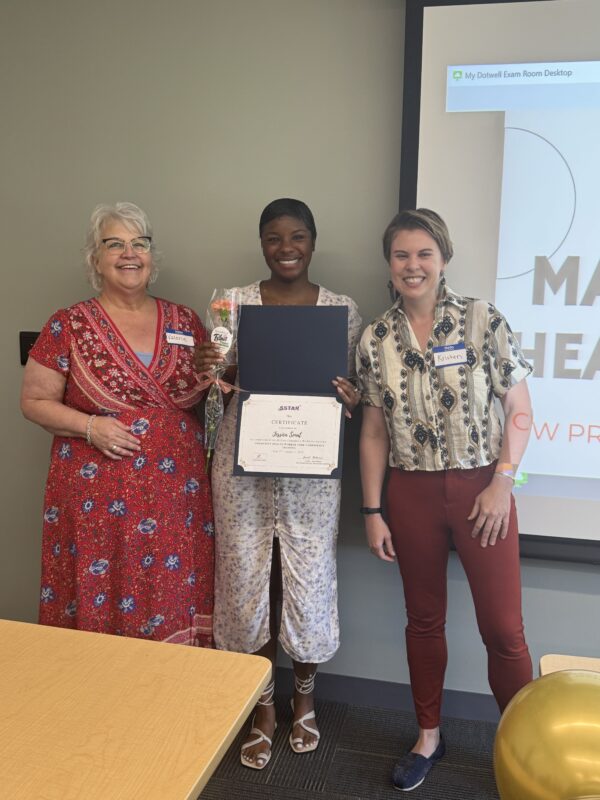 That morning, Asian Women for Health proudly celebrated our first Community Health Worker (CHW) graduation of DotHouse’s Doula Fellows. More than a ceremony, it marked the launch of the first program in our history to weave together doula training, CHW certification, and lactation support into one fellowship. Built through deep collaboration, this innovative model is helping meet the urgent need for culturally sensitive maternal health care.
That morning, Asian Women for Health proudly celebrated our first Community Health Worker (CHW) graduation of DotHouse’s Doula Fellows. More than a ceremony, it marked the launch of the first program in our history to weave together doula training, CHW certification, and lactation support into one fellowship. Built through deep collaboration, this innovative model is helping meet the urgent need for culturally sensitive maternal health care.
The graduates themselves embodied the program’s vision. They come from Haiti, Afghanistan, Vietnam, Cape Verde, and beyond – each bringing lived experiences that mirror those of the families they will now serve. Collectively, they speak six languages and represent the diversity that makes Boston’s communities strong.
For Jessica Senat, a second-generation Haitian-American educator, the calling is personal. Her own positive birth experience – held by a village at Mattapan Community Health Center – showed her what true advocacy feels like. “If you have someone to advocate for you in your scary times, it becomes a lot easier,” she reflects. “A doula gets to become part of the family – they get to talk to doctors and nurses to make sure you are comfortable.”
Maternal mental health is in crisis across the United States and immigrant, refugee, and minority women are among the hardest hit. Too often, language barriers, cultural stigma, and systemic inequities leave them without the care and support they need.
That’s where doulas make a difference. They don’t just show up for the birth; they show up for the mother. They advocate in medical settings, honor cultural traditions, and connect families with vital resources.
The graduates of this fellowship are more than birth companions. They are lifelines. They will sit beside women in their most vulnerable moments, offer emotional support, help families navigate complex healthcare systems, and ensure no mother is left to face this journey alone. Their presence can prevent postpartum depression, reduce unnecessary interventions, and – quite literally – save lives.
“I didn’t have my family here to support me and I went through depression,” shares Maryam Khairkhwah, whose second pregnancy in a new country was filled with loneliness and uncertainty. “My husband supported me but the support from a doula is different. Doulas can really acknowledge our issues – especially if you are new here. They can help in making the right choice.”
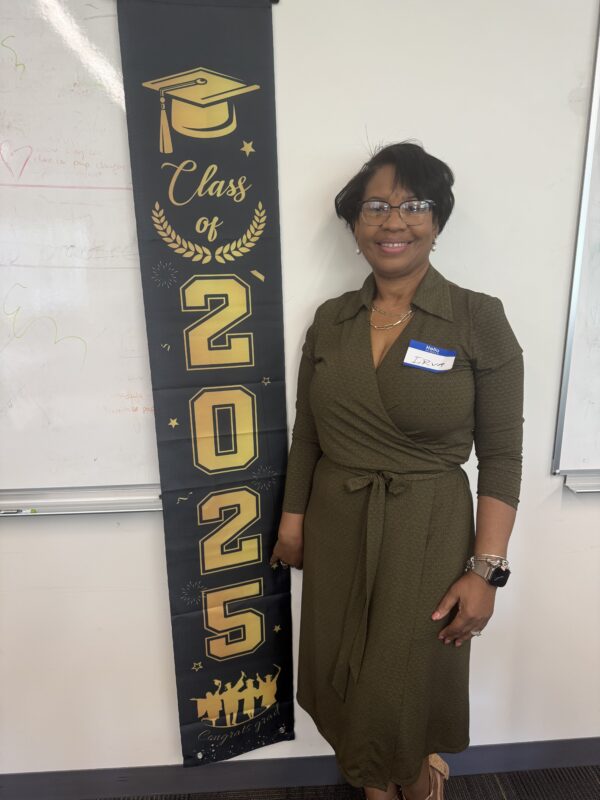
Among the many powerful stories, Cam Pham’s stands out as a testament to why this fellowship matters. Her battle with severe postpartum depression – “like I was dying,” she recalls – was compounded by repeated hospital visits that failed to address her pain and needs. With therapy, she reclaimed her health, and now she is committed to ensuring no other mother feels unheard or unseen. “I want to help women get the care they need and listen to their bodies,” she says.
These stories remind us why programs like the Dottapan Doula Fellowship are not just valuable – they’re essential for maternal mental health. When birthing people see themselves reflected in their care providers – through shared language, culture, and lived experience – the support they receive is profoundly different. It transforms the birthing journey, improves outcomes, and strengthens the long-term health and well-being of mothers and families alike.
The fellowship’s multilingual graduates are now stepping into their year-long service commitments at DotHouse Health, Codman Square Health Center, Mattapan Community Health Center, coordinated through Doulas of the Diaspora, and supported by the Massachusetts Department of Public Health’s Bureau of Family Health and Nutrition.
This is the first partnership of its kind, but we know it cannot be the last. At Asian Women for Health, we are committed to expanding programs that center community, equity, and healing. Because when mothers are supported, babies thrive, families flourish, and whole communities grow stronger.
